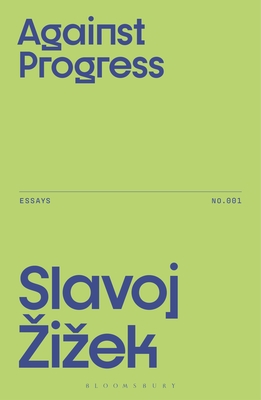
To define 'progress' is to lay claim to the future. Seminal thinker Slavoj Zizek turns essayist to interrogate the competing visions which form the horizons of human possibility and ask: Can things, which have never seemed worse, get better? What would a better world be? And how, when we are constantly besieged by doomers, degrowthers and disorienting relativisms can we make any headway at all in the face of unprecedented ecological, social and political crises?
In thirteen iconoclastic essays, Slavoj Zizek disrupts the death-grip that neoliberalists, Trumpian populists, toxic self-improvement industries and accelerationists alike have established on the idea of progress. Anatomizing what is lost when opponents of the future are allowed to define it, Zizek ruthlessly exposes what different visions of progress exclude or sacrifice and the dynamics of desire, denial and disavowal at work in Hollywood blockbusters, Buddhist economics, decolonization movements and other engines of vision. In a whirlwind tour that takes in everything from gentrification to the theory of relativity, Lacan to Lenin, Putin to Mary Poppins and Marine Le Pen to the end of the world, these essays never stop asking hard questions of imagined futures.
Nor does Zizek shrink from the hardest question of all: How do we free ourselves from the hypocritical, guilt-ridden dreaming in which we're enmeshed, and begin to build a better world?
member goods
listens & views

FRIENDS PLAY FISHER TULL'S CHAMBER ...
by TULL / CHAMBER ENSEMBLE / TULL,TIMOTHY
COMPACT DISCout of stock
$14.75






